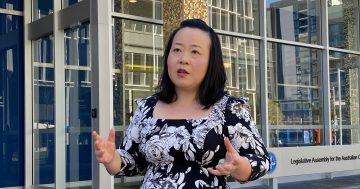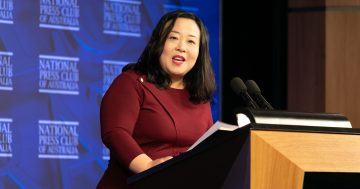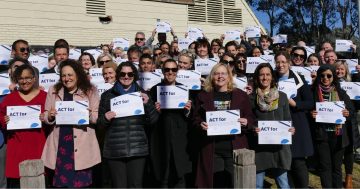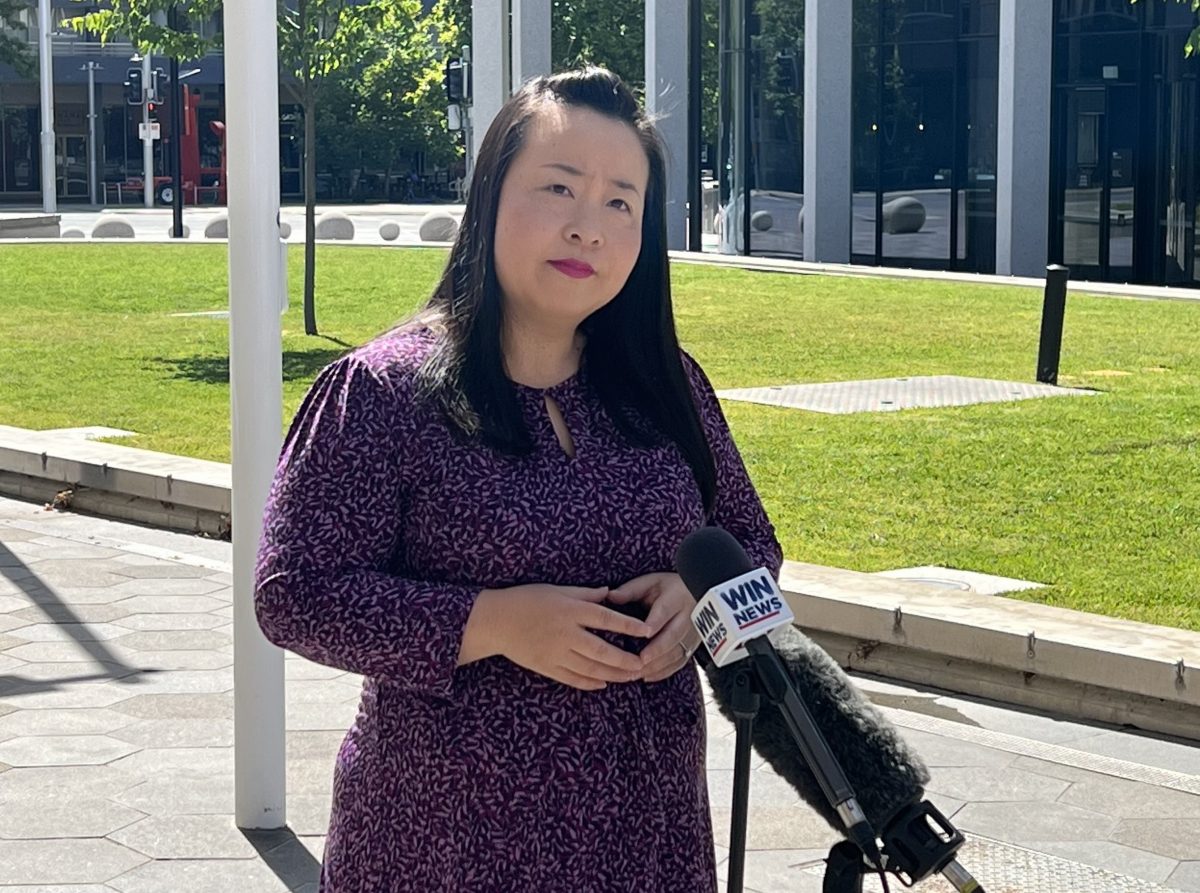
Canberra Liberals Leader Elizabeth Lee is concerned the government contract would see Canberrans’ personal data used for political purposes. Photo: File.
It’s the $25 million contract designed to help the ACT Government create campaigns that “ensure the best use of taxpayer funds” by making sure they’re seen by the correct demographics. But the Opposition has its doubts.
The Chief Minister Treasury and Economic Development Directorate (CMTEDD) spoke to explain the Media Services Deed following claims from the Canberra Liberals it was a “re-election war chest” for the current government.
“The ACT Government has an obligation to communicate with the community on important issues, such as health services, transport, land sales, tourism events, community safety and recruitment activities,” CMTEDD executive group manager Trish Johnston said.
“This contract is a whole-of-government arrangement for all Directorates to effectively and efficiently access advertising services to ensure the community is well-informed.”
The clarification came after Canberra Liberals leader Elizabeth Lee drew attention to the “media placement and advice” contract, which was signed on 16 January this year.
Ms Lee said this would give the government the ability to specifically target Canberrans with messaging and collect their data.
“While it is important for the ACT Government to ensure messaging around specific government services reaches those who need it, a $25 million contract for fairly specific purposes of microtargeting and collecting data from residents will no doubt be very concerning for many Canberrans,” she said.
“This contract includes a number of subcontractors listed that specialise in analytics and data gathering.
“Make no mistake. This is a $25 million re-election war chest for the Chief Minister and the Labor and Greens parties leading up to the 2024 election.”
Subcontractors listed in the 95-page contract include Reprise, for “search, social and/or mobile services”, and Kinesso, LLC, for “analytics services and tools, including for ad ops, reporting, insights, research and data”.
Ms Lee raised concerns about what kind of data would be collected about Canberrans and how it could be used.
“This substantial contract is effectively using $25 million of taxpayer funds to not only specifically micro-target Canberrans with messaging, but to collect data and ‘encourage behaviour change’,” she said.
“These capabilities will allow Labor and the Greens to use millions of taxpayer funds to know a lot more about individual Canberrans down to name, age, suburb and what they engage with online, and there seems to be little transparency as to how this information will be stored and used.”
Ms Johnston said this wasn’t the case at all, and that a “misunderstanding of the process” was at the heart of the situation.
She clarified a similar contract had been signed in 2018 and was due to expire on 28 February. The previous contract had an estimated value of $30 million over six years, while this one was for $25 million over five years.
“This is an estimated contract value, not a guarantee of expenditure. The total value of the contract is estimated based on a spend of approximately $5 million per year,” Ms Johnston said.
She went on to say the two contracts were similar, but key differences were technological changes between 2018 and now, as well as moving from two providers to one – in this case, Universal McCann, a global media network which is part of IPG Mediabrands. It has a local Canberra office with 19 employees.
“But for all intents and purposes, they’re contracts for the same thing, which is buying media spaces for all ACT Government Directorates to access at the most efficient price, because we do [messaging] as a whole-of-government rather than directorate by directorate,” Ms Johnston said.
She also clarified the government would not be collecting specific data about Canberrans, nor would they sell it on to advertisers.
Rather, it was about identifying where to send certain government messaging.
“We don’t want 25-year-olds getting campaigns that are targeted for people who can access services for over 60s,” Ms Johnston said.
“All of that data is de-identified, and it’s the data that is routinely collected when we all click those terms and conditions on Facebook and Twitter and all those other social media accounts.
“The data that is collected is made up of anonymous information, such as how many people saw an ad, what media platform they saw it on, and what actions they took as a result of seeing that ad.”
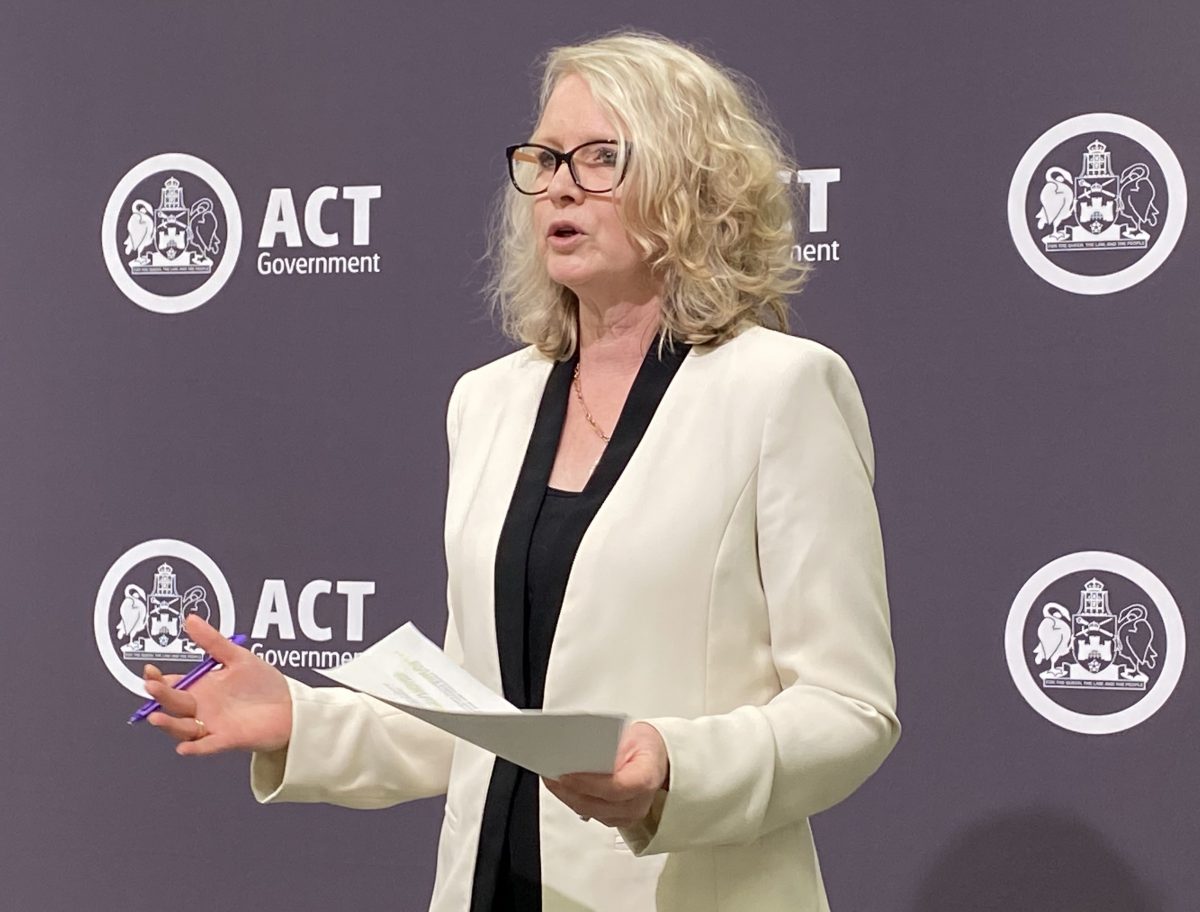
CMTEDD executive group manager Trish Johnston said there had been a ‘misunderstanding’ over the government contract. Photo: Claire Fenwicke.
Ms Johnston ruled out the information being used for “any election purposes”.
“This arrangement is for the ACT public service. It is not available to the government and political parties,” she said.
“The type of information we will have access to is if we put out an ad, we’ll be able to say [for example], ‘10,000 people saw it, they were approximately this age, and they clicked through to our website’, that’s about the level of information we’re talking about.”
The ACT Government publishes its communication and engagement priorities annually, which will be updated with the 2023-24 Budget in June.
With many social reform policies coming through the Legislative Assembly this year, Ms Johnston said it was possible more government campaigns could come through directorate messaging channels.
However, she pointed out campaigns with a value of more than $40,000 were examined by an independent reviewer to make sure they’re apolitical and informative.
“There is a lot that we advertise about, [but most years] a lot of it is low value, it’s recruitment ads, it’s public notices, those sorts of things,” Ms Johnston said.
“It is possible that we might have more of the higher-value campaigns that are over $40,000 [this year], but every year we spend about a million dollars on attracting visitors to the ACT, we spend about half a million dollars on promoting all the great events that we have.
“So there’s a fair bit of expenditure that goes on anyway.”

















